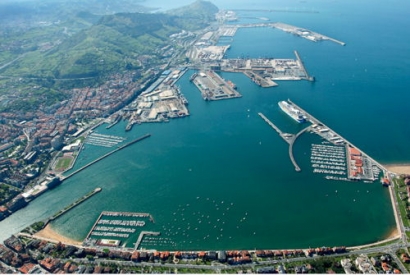
The first project, in which $67.5 million (€60 million) will initially be invested, involves building one of the largest net zero emissions synthetic fuel production plants in the world, based on green hydrogen generated with renewable energy. The main feature of these new fuels is that they are produced using water and CO2 as the only raw materials. They can be used in the combustion engines that are currently installed in automobiles in Spain and the rest of the world, as well as in airplanes, trucks, and other machinery.
Repsol’s partners include Petronor, one of Spain’s principal industrial centers; and the Energy Agency of the Basque Government (EVE), a public-sector leader in the energy transition.
The facility, which will be fully operational within four years, will set a new benchmark in Europe thanks to the cutting-edge technology applied and the use of CO2 captured in the nearby Petronor refinery. Its development represents a first-order technological challenge that will be led by the Repsol Technology Lab research center. It will combine green hydrogen—a 100% clean energy generated from renewable sources—with CO2 as the raw materials in the process, and it will position Repsol on the leading edge of the development of net zero emissions fuels.
In the first phase, which will be scalable in a later commercial stage depending on the results obtained, 50 barrels of synthetic fuel will be produced per day, with net zero emissions of CO2 in the entire production cycle. Conceptual engineering will begin this year. Petronor is the only refinery in the Iberian Peninsula and one of few in Europe that has integrated the process of capture, storage, and use of CO2, and it is expected to be able to capture the CO2 directly from the air.
The second project, which will be located next to the first one, also with the port of Bilbao and its surrounding area as the priority option, will represent an initial investment of $22.5 million (€20 million). Led by Petronor, it will consist of a plant for generation of gas from urban waste. The generated gas will be used to replace part of the traditional fuels that the Basque refinery, one of the largest in Spain, currently uses in its production process.
In its first stage, this pyrolysis plant will be able to process around 10,000 tons of urban waste a year, and its capacity could be increased in later stages to approximately 100,000 tons a year, equivalent to all the urban waste produced in the surrounding area.
According to the CEO of Repsol, Josu Jon Imaz, “These projects highlight the importance of maintaining technological neutrality in the search for the alternatives necessary for decarbonization, taking into account all possible technological solutions for achieving success in the fight against climate change, without prejudices, committing to those that contribute to reaching our goals in the most efficient and sustainable way possible and supporting our industry.
“Spain must base its decarbonization strategy on its technological and industrial capabilities. The production of green hydrogen in combination with the capture and use of CO2 to produce net zero emission fuels is part of the industrial decarbonization strategy of Repsol. With this project, the Spanish industry is positioning itself to become a leading European player in reducing emissions.”
Emiliano López Atxurra, chairman of Petronor, a company that is part of the Repsol Group, said that “the project unifies three important characteristics in the current situation: a commitment to reduce the carbon footprint and the technological neutrality as a lever; the challenges that the industry and technology are facing in relation to the energy transition; and public-private partnerships as a smart tool to realize an industrial development that will help us consolidate a sustainable welfare society.”

